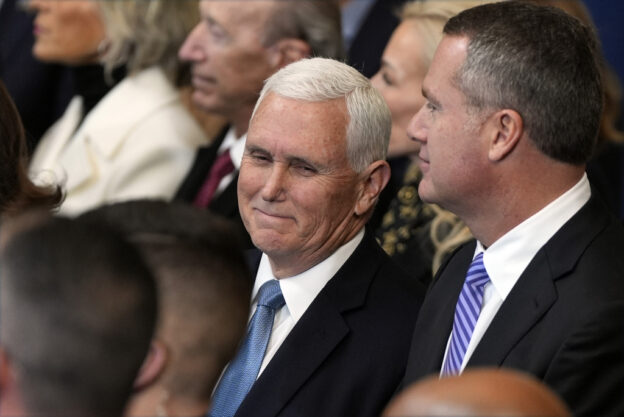The Satmar Rebbe and Rabbi Moshe Sherer had the same take on the question of whether or not anti-Israel sentiment cloaks antisemitism. To read what they had to say, please click here.


The Satmar Rebbe and Rabbi Moshe Sherer had the same take on the question of whether or not anti-Israel sentiment cloaks antisemitism. To read what they had to say, please click here.

Much attention has been given to the ascension of Zohran Mamdani to the mayoralty of New York City.
But whether the future of the left wing of the Democratic Party is more accurately presaged by the election of a radical as mayor than by the downfall of a progressive governor is far from clear.
To read what I’m referring to, please click here.

A Substack post about evolution is here.
Future Substack post links won’t be posted on this site. So if you have interest in reading them each week, please subscribe (it’s free) to my Substack. Thanks.
.

Displeasure over Kevin Roberts’ refusal to distance the Heritage Foundation from Tucker Carlson has yielded something good: A boost to Mike Pence.
To read more about that something, please click here.

Only one of the Ten Plagues visited upon Par’oh and Mitzrayim elicits a declaration of guilt and admission of Hashem’s righteousness from the Egyptian leader.
“This time I have sinned,” Par’oh admits. “Hashem is the righteous One, and I and my nation are the wicked ones.” (Shemos 9:27).
It is the plague of hail. Why, of all the other punishments, that one?
What occurs is that the answer may lie in the Midrash brought by Rashi (ibid, 24), that each piece of hail contained a flame, and that water and fire “made peace with each other” in order “to do the will of their Creator.”
Par’oh was an idolater. The Egyptians worshipped the Nile and, according to historians, the sun. Idolatry entails choosing a “team” to be on. One can be on Team Nile, Team Sun, Team Water, Team Fire…
Monotheism entails the recognition that all the “teams” (elohos) are subservient to the one Creator of all the elements (Elohim).
Perhaps Par’oh was forced to confront and internalize that fact by having witnessed, during the plague of hail, the “partnership” of opposites.
Truth be told, we are all comprised of opposites: souls and bodies. Each has its own desideratum. The only way to “make peace” between them is endeavoring to fulfill the will of our Creator, which requires both elements to work together.
© 2026 Rabbi Avi Shafran

You can read my Substack offering “Dear Mayor Mamdani” here.

In a good example of Talmudic humor, Rav Nachman reacted to Rav Yitzcḥak’s recounting of what Rabi Yochanan said – that “Our patriarch Yaakov did not die” – with a wry question: “So was it for naught that the eulogizers eulogized him and the embalmers embalmed him and the buriers buried him?” (Taanis, 5b).
The way to understand the contention that Yaakov didn’t die, I think (and it’s borne out of the verses quoted in that Gemara), is that he lives on — as the patriarch whose children, all of them, became the progenitors of Klal Yisrael — through the eternal Jewish people.
The Midrash in Vayeishev, commenting on Yosef’s dream about the sun, moon and stars bowing to him, has Yaakov wondering, “Who revealed to him that my [secret] name is ‘sun’?”
It’s interesting to reflect (pun intended) on the fact that the moon – the symbol, in its waxing and waning, and in its role in the Jewish calendar, of Klal Yisrael – reflects the light of the sun. We reflect Yaakov, are the continuation of his life.
Even more interesting, according to the Tikkunei Zohar (brought by the Shela and the Bach [Orach Chaim 281]), “the image of Yaakov is carved out [i.e. visible] in the moon.”
© 2025 Rabbi Avi Shafran

It is one of the hardest of life’s lessons to learn, a truth born only of challenges we all first encounter in childhood but that persist well beyond: The realization that being shouldered with responsibility needn’t bespeak lording but love.
Rashi comments on Hashem’s repetition of Yaakov Avinu’s name, calling out to him “Yaakov! Yaakov!” (Beraishis, 46:2), as a lashon chibah, a locution of endearment.
The full Midrash from which Rashi quotes, though, adds “lashon ziruz” – a locution of motivation, a pushing to action.
In last week’s parshah, the Midrash has Yaakov hinting to Hashem a desire for an end to the relentless challenges that had confronted him throughout his life, regarding Lavan, Esav, Rochel, Dina, Yosef, Shimon and Binyamin (43:14).
But in this week’s parshah, Hashem hints back that what might seem to be burdens are in truth opportunities, features, not bugs. Yaakov’s life was unimaginably hard. But by living it he became Yaakov Avinu.
With the term “Yaakov! Yaakov!” Hashem signals that being given the responsibility to shoulder challenges – ziruz – can be inseparable from, indeed an expression of, chibah – love.
And that is true not only when the “pushing” is coming from Above, but also when it’s coming from a parent, a spouse or a friend.
© 2025 Rabbi Avi Shafran

Tucker Carlson, Candace Owens and Nick Fuentes are, blessedly, like contentious crustaceans brawling in a bucket. To read what I mean, please click here.

The Hebrew word for “mourning” is introduced in Vayeishev to describe Yaakov’s response to the apparent death of his son Yosef: “Vayis’abel (Beraishis 37:34).
The word “eivel” — “mourning” — is composed of the same letters, in the same order, as the word “aval” — “however.”
“However” bespeaks an interruption of a thought. And mourning — the facing of mortality forced by the death of someone close — is an interruption of life, of living, as we all do, without constantly thinking about death.
It’s interesting to note that the parsha includes not only the interruption of Yaakov’s life by Yosef’s disappearance – the source of his aveilus – but a striking interruption, too, of the narrative flow of the parsha itself, by the account of Yehudah and Tamar.
And that narrative also presents yet another interruption, this one, of Yehudah’s life. He is suddenly, unexpectedly, forced to confront the reality of his responsibility for the fact of Tamar’s pregnancy.
Tamar tells him, when he seeks to punish her, that he seems innocent and she seems guilty. But, she continues, please recognize these personal items… (38:25). That, for Yehudah, is an aval – a “however” – moment too.
© 2025 Rabbi Avi Shafran